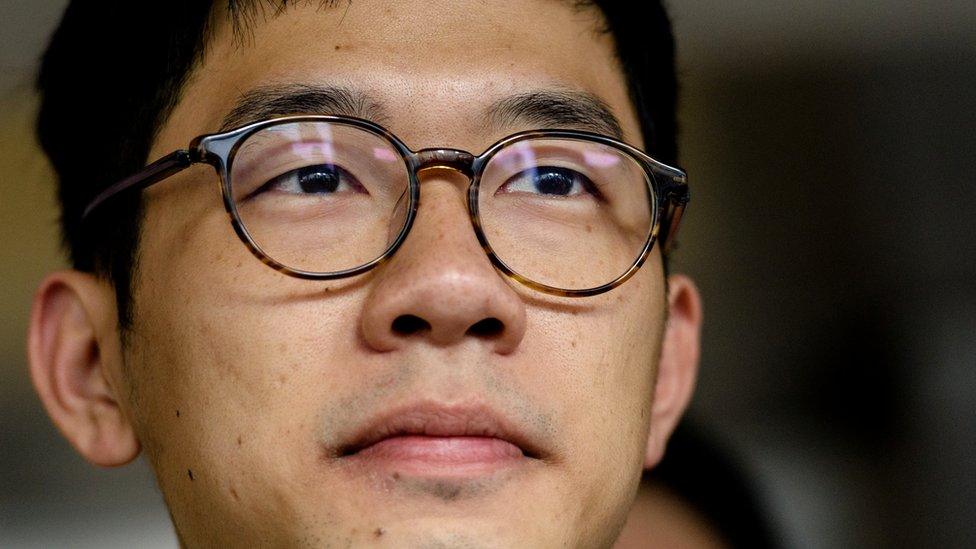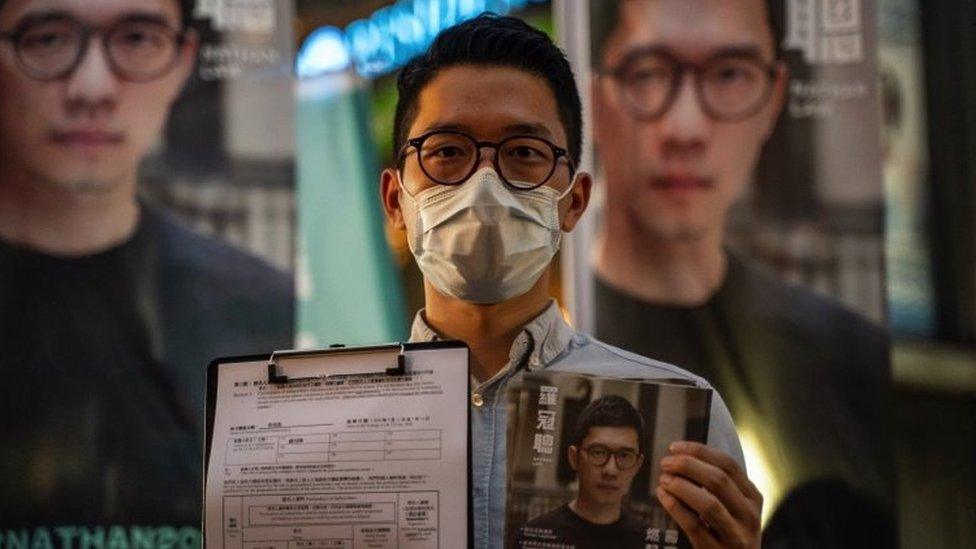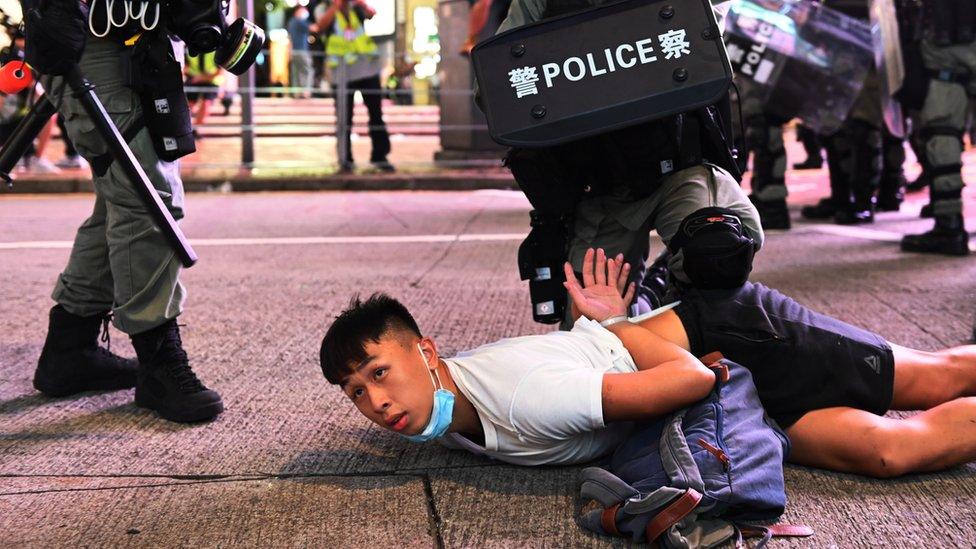Nathan Law: Hong Kong pro-democracy activist reveals he's in London
- Published

Nathan Law has said he fears being imprisoned by Beijing if he returns to Hong Kong
One of Hong Kong's most prominent young pro-democracy activists says he is in London after fleeing the territory following a sweeping, controversial security law imposed there by China.
"I boarded my night flight... My destination: London," Nathan Law wrote on Twitter, a week and a half after saying he had left Hong Kong.
He said he had spoken with reporters and was living in a "little apartment".
Activists say that China's new law erodes Hong Kong's freedoms.
But Beijing has dismissed the criticism, saying that the law is necessary to stop the type of pro-democracy protests seen in Hong Kong during much of 2019.
Mr Law is a one-time student leader who rose to prominence during mass protests in 2014.
He was also a local legislator who co-founded the Demosisto Party with another well-known activist, Joshua Wong. The party disbanded when China imposed the new law.
It is not clear from his social media posts on Monday when he arrived in the UK.
What did Nathan Law post on social media?
Writing on social media, Mr Law said that he faced "many uncertainties", but had made the decision to leave Hong Kong "in the face of political upheaval".
"We don't even know if our next protest, next court hearing, will be followed by imprisonment," he said, adding that he had put himself in "danger". "I've kept a low profile on my whereabouts in order to mitigate the risks."
In one post, which appeared to include a aerial photo of London from the window of a passenger plane, he said he had a message for Hong Kongers: "We aren't fractured. On the contrary, we're well-equipped to face the next difficult battle."
Allow Facebook content?
This article contains content provided by Facebook. We ask for your permission before anything is loaded, as they may be using cookies and other technologies. You may want to read Meta’s Facebook cookie policy, external and privacy policy, external before accepting. To view this content choose ‘accept and continue’.

Earlier this month, Mr Law told the BBC that he would continue his advocacy work from abroad, and that the people of Hong Kong would not give up their fight. "I think the movement is still pretty much alive," he said.
On 1 July, the 27-year-old spoke via video link to a US Congressional hearing on Hong Kong. He told American politicians he was worried about returning to the territory, for fear of being imprisoned by Beijing.
"Merely speaking about the plight of Hong Kongers on an occasion like this, contradicts the new national security law," he told the hearing.
"So much is now lost in the city I love: the freedom to tell the truth."
What is the controversial new law?
Hong Kong's sovereignty was handed back to China by Britain in 1997 and certain rights were supposed to be guaranteed for at least 50 years under the "one country, two systems" agreement.
Last month, China passed a wide-ranging new security law for Hong Kong which makes it easier to punish protesters and reduces the city's autonomy.
Nathan Law: 'The Hong Kong movement is still alive'
It gives the Chinese state new powers over the city, allowing it to target secession, subversion and terrorism with punishments of up to life in prison.
The decision to implement the measure has drawn widespread international condemnation.
Elements of the new, wide ranging law include:
Making "inciting hatred" of China's central government and Hong Kong's regional government illegal
Allowing for closed-door trials, wire-tapping of suspects and the potential for suspects to be tried on the mainland
Making it possible for a wide range of acts, including damaging public transport facilities, to be considered terrorism
Requiring internet providers to hand over data if requested by police
China's new law also states that it will apply to non-permanent residents of Hong Kong and to people "from outside" the territory.
- Published3 July 2020

- Published1 July 2020
